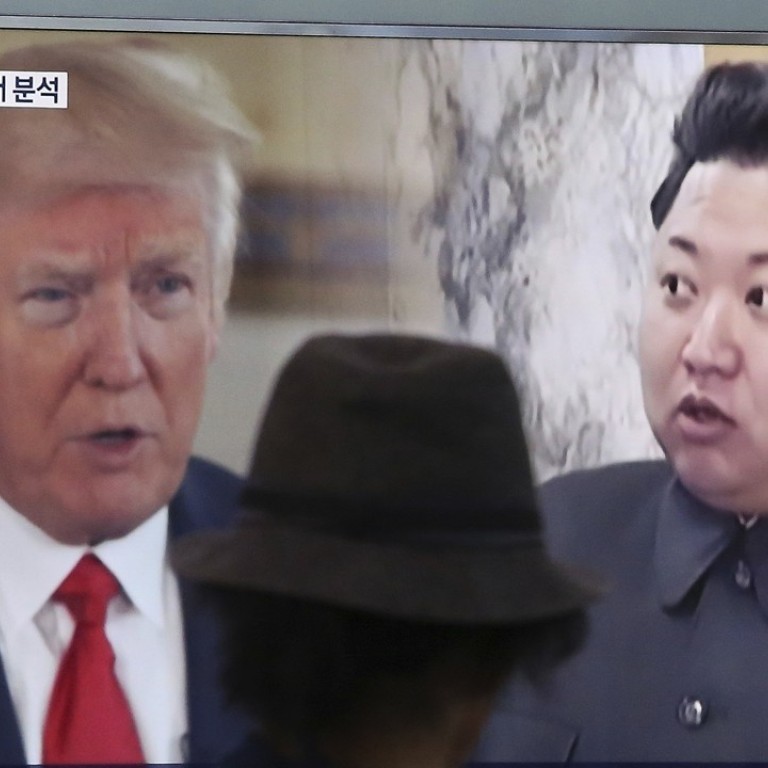
Korean answer lies in peace treaty talks
Sanctions and provocations will not deter the Pyongyang nuclear programme; negotiations between Kim Jong-un and Donald Trump, with China’s help, are needed
International concerns over North Korea’s nuclear programme have again been quelled by another round of UN Security Council sanctions. China and the other four permanent members have agreed to restrict oil imports, ban textile exports and prohibit new permits for North Korean workers to starve the nation of fuel and cash for its weapons systems. But previous such measures have repeatedly been ignored by Pyongyang and there is no reason to believe that this will not again be the case; there has been talk of more missile launches since the claimed recent hydrogen bomb blast. Hope in the decision therefore most lies in a call to seek a peaceful resolution through diplomacy.
The US had been pushing tougher measures, among them a total oil ban. That was opposed by Beijing and Moscow; it could cause the collapse of North Korean leader Kim Jong-un’s regime, with destabilising consequences for Northeast Asia. China would be worst affected should civil unrest break out and spill across its border. A proposed asset freeze and travel ban on Kim were dropped.
The resolution on Monday was the ninth since North Korea’s first nuclear test in 2006. Kim has thumbed his nose at each of the last few rounds of sanctions, responding to each with either another nuclear blast or by launching a missile. Room remains to further tighten the fuel or economic screws, but there are limits to how far China and Russia, the North’s closest allies, are willing to go. Far better, as they stated after the latest measures, for the US and South Korea to stop provocations through staging joint military drills, scrap a controversial missile shield system and talk with Pyongyang.
But stability also requires Kim to reach out. He complains that his nation is threatened by the presence of the US military in the region. Yet each new explosion or missile launch drives American allies South Korea and Japan to seek better weapons protection. There is now a danger of further nuclear proliferation through both working for atomic weapons.
Dialogue brought an end to Iran’s nuclear proliferation. North Korea’s one-party political system is markedly different from that of Iran, ensuring that a different strategy has to be adopted. But the fundamentals are the same; talks between Pyongyang and Washington that lead to a peace treaty to finally end the Korean war are the only viable way to ensure peace and stability. Sanctions and provocations will not deter Kim; war, at times threatened by the US, can never be an option given the massive loss of life that would result on the Korean peninsula. China can help facilitate negotiations, but there has to first be a willingness for dialogue from Kim and US President Donald Trump.

